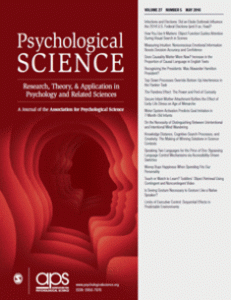
Recently, a biostatistician sent an open letter to editors of 10 major science journals, urging them to pay more attention to common statistical problems with papers. Specifically, Romain-Daniel Gosselin, Founder and CEO of Biotelligences, which trains researchers in biostatistics, counted how many of 10 recent papers in each of the 10 journals contained two common problems: omitting the sample size used in experiments, as well as the tests used as part of the statistical analyses. (Short answer: Too many.) Below, we have reproduced his letter.
Dear Editors and Colleagues,
I write this letter as a biologist and instructor of biostatistics, concerned about the disregard for statistical reporting that is threatening scientific reproducibility. I hereby urge you to spearhead the strict application of existing guidelines on statistical reporting. Continue reading Dear journals: Clean up your act. Regards, Concerned Biostatistician






